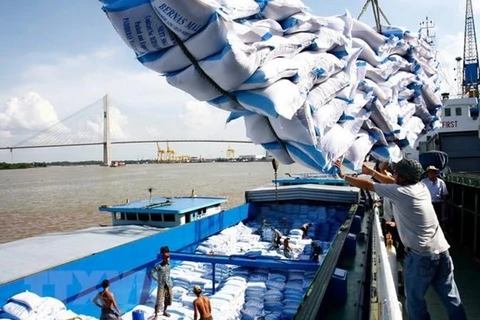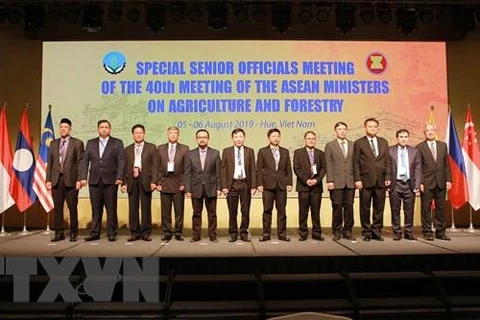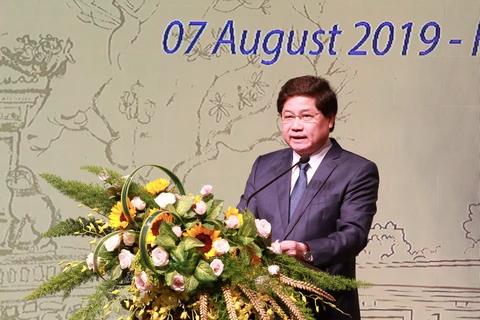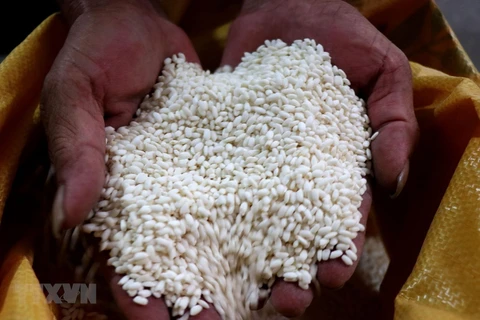Hanoi (VNA) – Vietnam was ranked fourth in Southeast Asia and 54th worldwide on the Global Food Safety Initiative (GFSI) index in 2019.
The Economist Intelligence Unit (EIU) of the UK’s Economist magazine revealed that Vietnam scored an overall 64.9 points out of the 100 points, higher than the average of 62.9 points among 113 countries and territories.
Compared to Southeast Asian peers, Vietnam was behind Singapore (1st place), Malaysia (28th) and Thailand (52nd), though ranking above Indonesia (62nd), the Philippines (64th), Myanmar (77th), Cambodia (90th), and Laos (92nd).
Vietnam did well in eight indicators - presence and quality of food safety net programmes, access to financing for farmers, change in average food costs, proportion of population under global poverty line, food safety, volatility of agricultural production, urban absorption capacity, and food loss - with a score above 75.
However, it struggled in public expenditure on agricultural research and development with 1.7 points, and affordability of food with 5.3 points, which were below the world average of 5.0 and 17.8 respectively.
Singapore topped the global index ranking with an 87.4 overall score, making it the only country in Asia to finish in the top 10. Ireland and the US each earned an overall score of 84 and 83.7 to follow Singapore and complete the global top three.
Yemen, Burundi and Venezuela made up the bottom three.
Climate change is threatening the world’s ability to ensure food security, eradicate poverty and achieve sustainable development. The United Nations has recently projected that up to a quarter of the global food production could be lost by 2050 due to the combined impact of climate change, land degradation and water scarcity.
The United Nations Food and Agriculture Organisation (FAO) said that an increasing population will drive demand for food up by to 60 percent by 2050, making food security a key issue of the whole world.
As an agricultural country, Vietnam is taking urgent actions to ensure food security against the negative effects of climate change, which has resulted in heat waves, forest fires, floods and sea level rise in recent years.
The Mekong Delta, the largest agricultural production area in Vietnam, is among the areas hardest hit by climate change and sea level rise.
According to the Ministry of Agriculture and Rural Development, up to 32.2 percent of agricultural areas will be affected by climate change by the end of the 21st century.
Production of major crops like rice and corn are projected to reduce dramatically if global average temperature increases by two degrees Celsius. Climate change has also left far-reaching impact on livestock production and aquaculture.
To ensure food security, the agriculture sector has made efforts to minimise risks from floods, droughts and rising temperatures.
The sector has focused on applying scientific and technological advances in agricultural production. Many climate-friendly agriculture models have been developed, which reduce the use of chemical fertilisers, water and gas emissions by 30 percent while increasing rice productivity by 10-20 percent.
To adapt to climate change, the agriculture sector has restructured itself in order to increase farm productivity and quality by using suitable plant, livestock and fish varieties, forming value chains and drawing investment into the sector while minimising climate change impact by practicing smart cultivation.
Vietnam has launched an action plan for climate change adaptation and mitigation in the agriculture and rural development sector for the 2016-2020 period, with a vision through 2050.
The country has also committed to mobilising all resources to implement the Agenda 2030 for Sustainable Development and the Paris Agreement on Climate Change./.
























